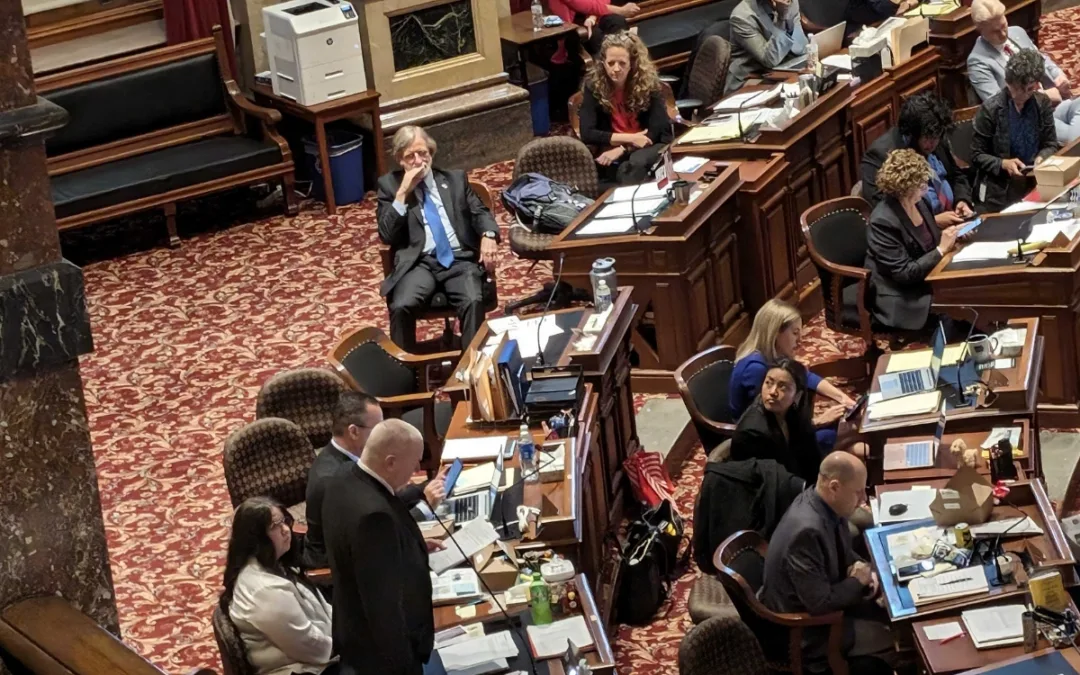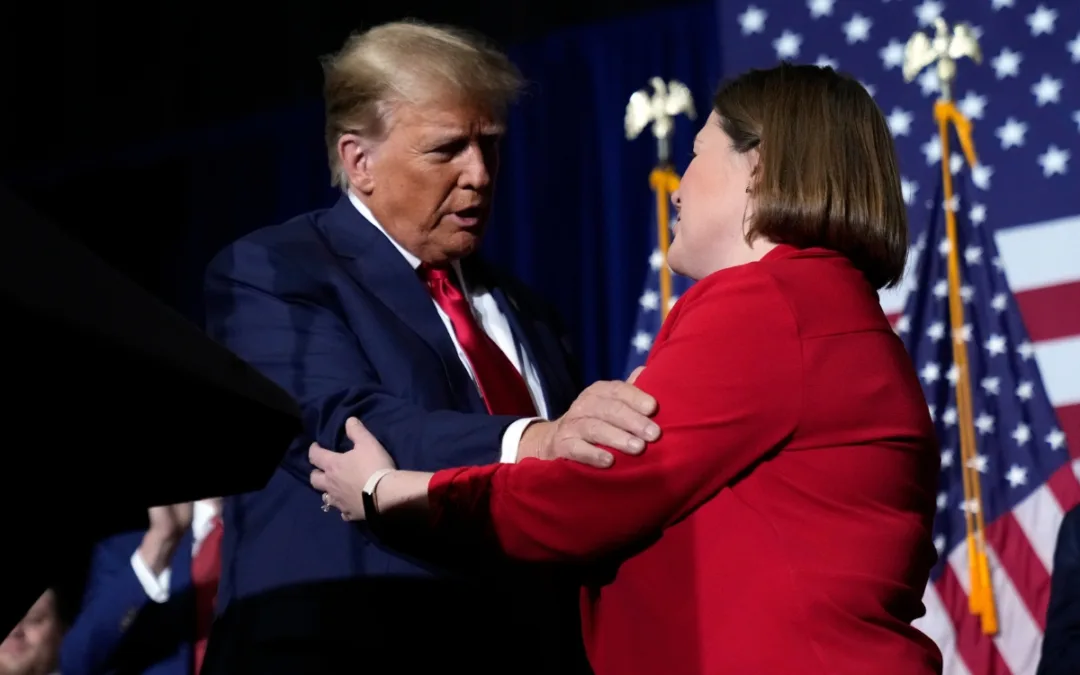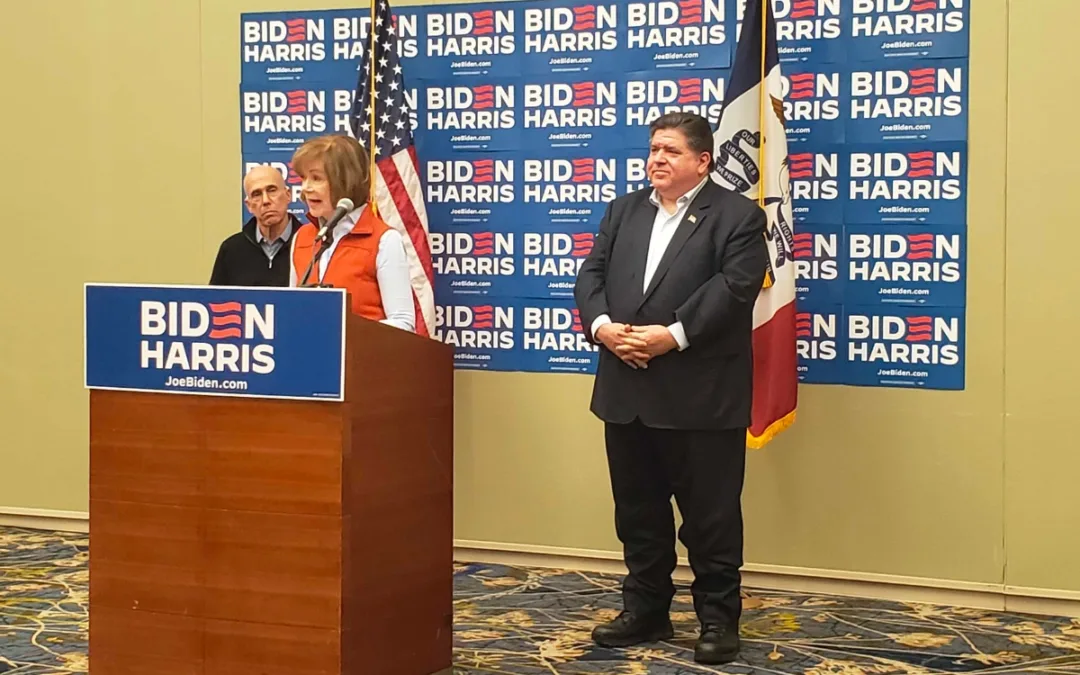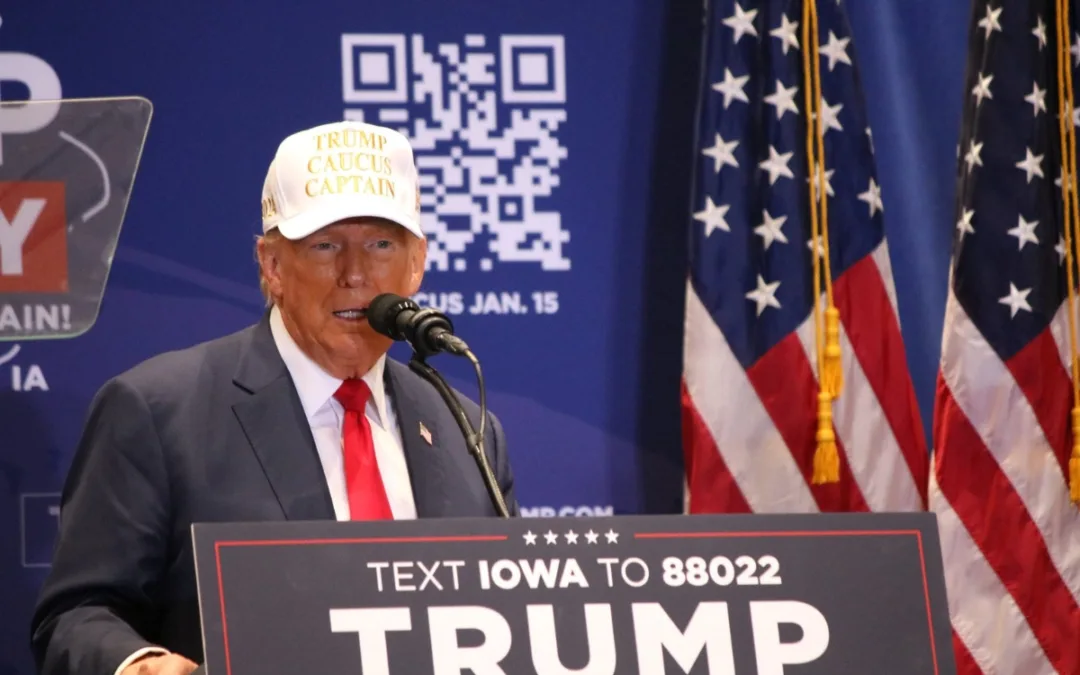
As the Democratic primary shifts into high gear for the final months before the early states start voting, we can expect candidates to draw sharper contrasts with one another and some attack ads to start airing. Just don’t be surprised if you don’t see much of that back-and-forth happening between the women senators in the race.
This year’s race for the White House has included a record number of women running for the highest office in the land. Until last week, four women in the Senate were part of the Democratic field, down now to three after Kirsten Gillibrand withdrew. But the three remaining — Kamala Harris, Amy Klobuchar and Elizabeth Warren — all look like they’ll be in the race at least through caucus night in Iowa.
While all of the candidates are much more personally friendly with each other on the campaign trail than what gets portrayed in the debates, there’s a unique connection among the women from the Senate.
“These are women I’ve worked with,” Warren told Starting Line last month. “Some of them who helped me get elected and some of them I’ve helped get elected. I’ve been able for a long time to talk to them on the floor of the Senate, to catch a chance to visit at lunch and to support each other. We fight for what we believe in, and we have our own stories and our own ways that we approach it. But we support each other and respect each other.”
In a field this large, while most of the candidates have interacted in some way before this race, it’s a much different, deeper relationship that the senators hold.
“Elizabeth and I are in leadership together, so we see each other all the time,” Klobuchar said in an interview with Starting Line. “Kirsten and I do the softball game — she’s the pitcher and I’m the MC. And Kamala and I, of course, are on the judiciary committee together.”
There could be plenty of opportunities for the women to clash on the campaign trail, even if it stuck purely to policy. Warren’s and Klobuchar’s policy proposals, especially on health care, bookend either side of the ideological divide within the party. Harris’ fine-tuning of her health care plan could have been criticized by either.
But they’ve restrained from criticizing each other directly. Klobuchar was prodded multiple times in the second Democratic debate to contrast herself with Warren and others, an opportunity she took a pass on (the same can’t be said for Tulsi Gabbard, a House member, who has specifically targeted Harris multiple times).
“We need to be focused more on Trump than each other,” Klobuchar later told us. “What unites us is more than what divides us.”
“I don’t know of any contentiousness among the women,” noted Warren. “I know that a couple of times when I thought that my women colleagues were treated unfairly, I got on the phone and made some phone calls to them.”
“We’ll text each other after different things have happened on the campaign,” Klobuchar said.
All four senators noted that they’ve kept in touch with each other through texts and the occasional call. And with so many multi-candidate events, they run into one another relatively often.
“It’s very fun when you’re about to go on stage or just come off stage and you see one of your Senate colleagues,” Gillibrand told Starting Line last month before leaving the race. “We have a real camaraderie among us.”
That’s led to several personal moments out on the campaign trail. Gillibrand sang happy birthday to Warren after the two were at a Planned Parenthood forum in South Carolina. Klobuchar gave Gillibrand some shout-outs and praise before the two appeared at an Iowa City labor event. Gillibrand later snuck up on and surprised Klobuchar at the Iowa State Fair.
Most of the senators’ interactions have simply been focused on encouraging each other.
“We’re very supportive of each other, but also of our male colleagues,” Harris told Starting Line. “There’s a lot of good camaraderie and real authentic respect between us. It is important to recognize the accomplishments and voices that everyone is bringing.”
And those relationships should be beneficial if any of the three remaining women senators end up in the White House, giving them allies to go to in the Senate to get their legislation passed.
“It increases the chances we can get done what we need to get done,” Warren said. “It also means that I’ve got friends to call on whose judgement I can trust, and who see things from different perspectives and that’s valuable.”
“I think if any of the women become president, the rest of us will help that person,” Gillibrand added.
While Gillibrand is now only in the position to help from the Senate, the others will need plenty of help in Congress to push through the ambitious proposals they’ve pitched on the campaign trail this year, even if they’ve disagreed on the details during the primary.
“It’s just the reminder that we’re here to try to serve our country,” Warren said.
by Pat Rynard
Harris photo by Lauren Johnson, Klobuchar photo by Julie Fleming
Posted 9/2/19
Politics

AEAs cutting workers in wake of Republican legislation
Iowa legislators said a new bill cutting money for agencies that help students with disabilities wouldn't affect services. But area education...

He said what? 10 things to know about RFK Jr.
The Kennedy family has long been considered “Democratic royalty.” But Robert F. Kennedy, Jr.—son of Robert F. Kennedy, who was assassinated while...
Local News

No more Kum & Go? New owner Maverik of Utah retiring famous brand
Will Kum & Go have come and gone by next year? One new report claims that's the plan by the store's new owners. The Iowa-based convenience store...

Here’s a recap of the biggest headlines Iowa celebs made In 2023
For these famous Iowans, 2023 was a year of controversy, career highlights, and full-circle moments. Here’s how 2023 went for the following Iowans:...





